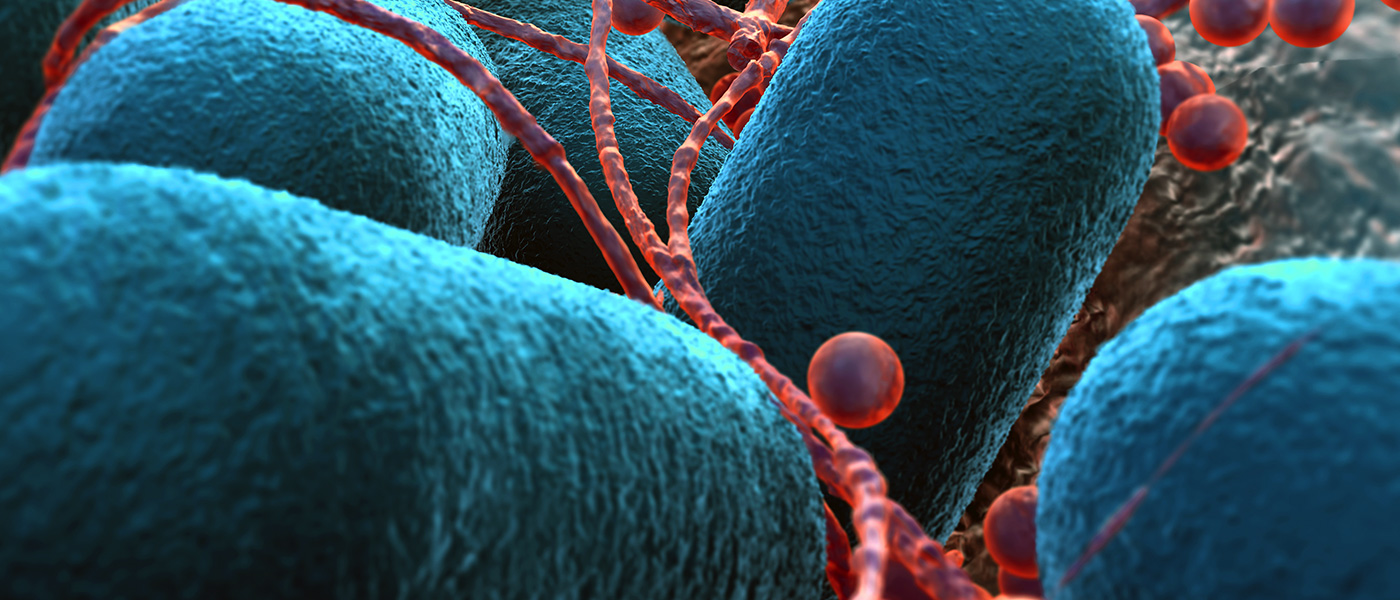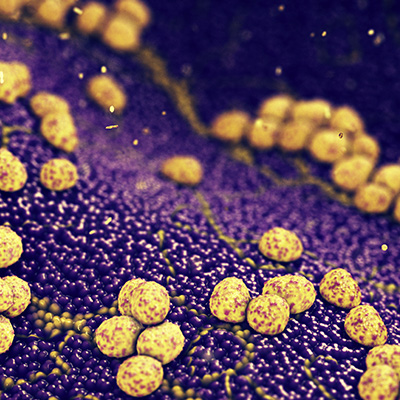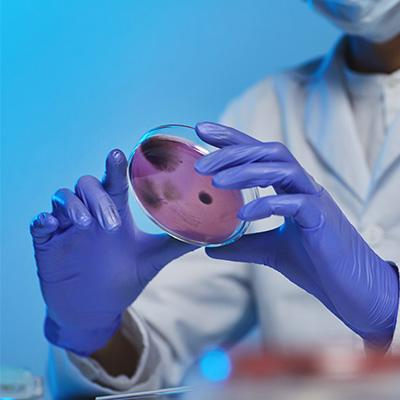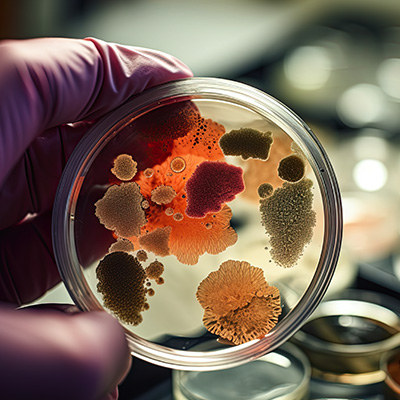Escherichia coli
Escherichia coli (E. coli) is a Gram-negative bacterium (GNB) commonly found in the human intestine.
GNBs have a much thinner peptidoglycan cell wall than gram positive bacteria, and an outer membrane containing lipopolysaccharides surrounding the cell. GNBs are so-called because they do not retain the crystal violet stain used in the Gram staining method, and are among the world’s most significant public health problems due to their high resistance to antibiotics.
Most E. coli strains are harmless, but some cause serious infections including food poisoning, septic shock, meningitis, and urinary tract infections (UTIs).
Uropathogenic E. coli (UPEC) account for the great majority of human UTIs that require medical intervention and are the most common reason for prescription of antibiotics.

Antibiotic-resistant E. coli are emerging with carbapenem-resistant strains which are listed as the highest priority for R&D of new antibiotics by the World Health Organization.
NCCR AntiResist aims to accelerate discovery and development of novel antibacterial treatments by developing in-vitro models that approximate the physiological state of E. coli in urinary tract infection (UTI) patients.
Our three focus approach
- To profile uropathogenic E. coli (UPEC) in clinical specimens collected from UTI patients
- To develop bladder-mimicking in-vitro models for UPEC infections by using in-patient data as guidance and benchmarks
- To identify new antibacterial strategies to interfere with UPEC infection and persistence
Leadership of E. coli research

Leader:
John McKinney »
Co-leader:
Christoph Dehio »








